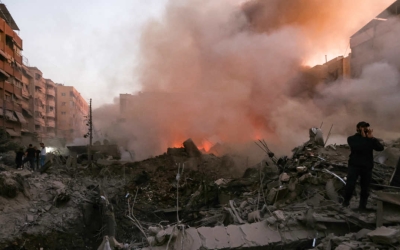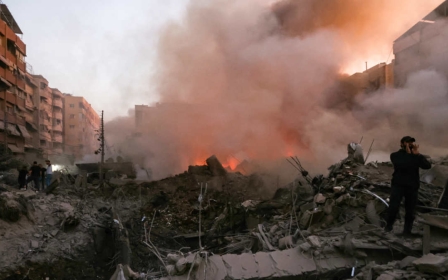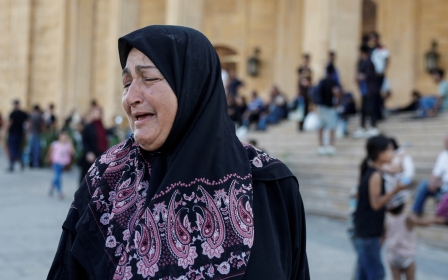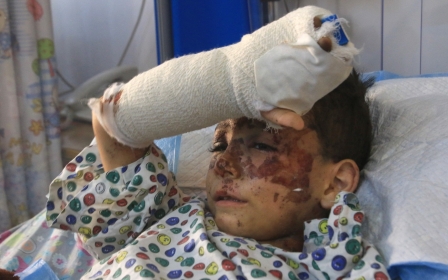Dozens killed as Israeli strikes pummel Lebanon after Nasrallah killing
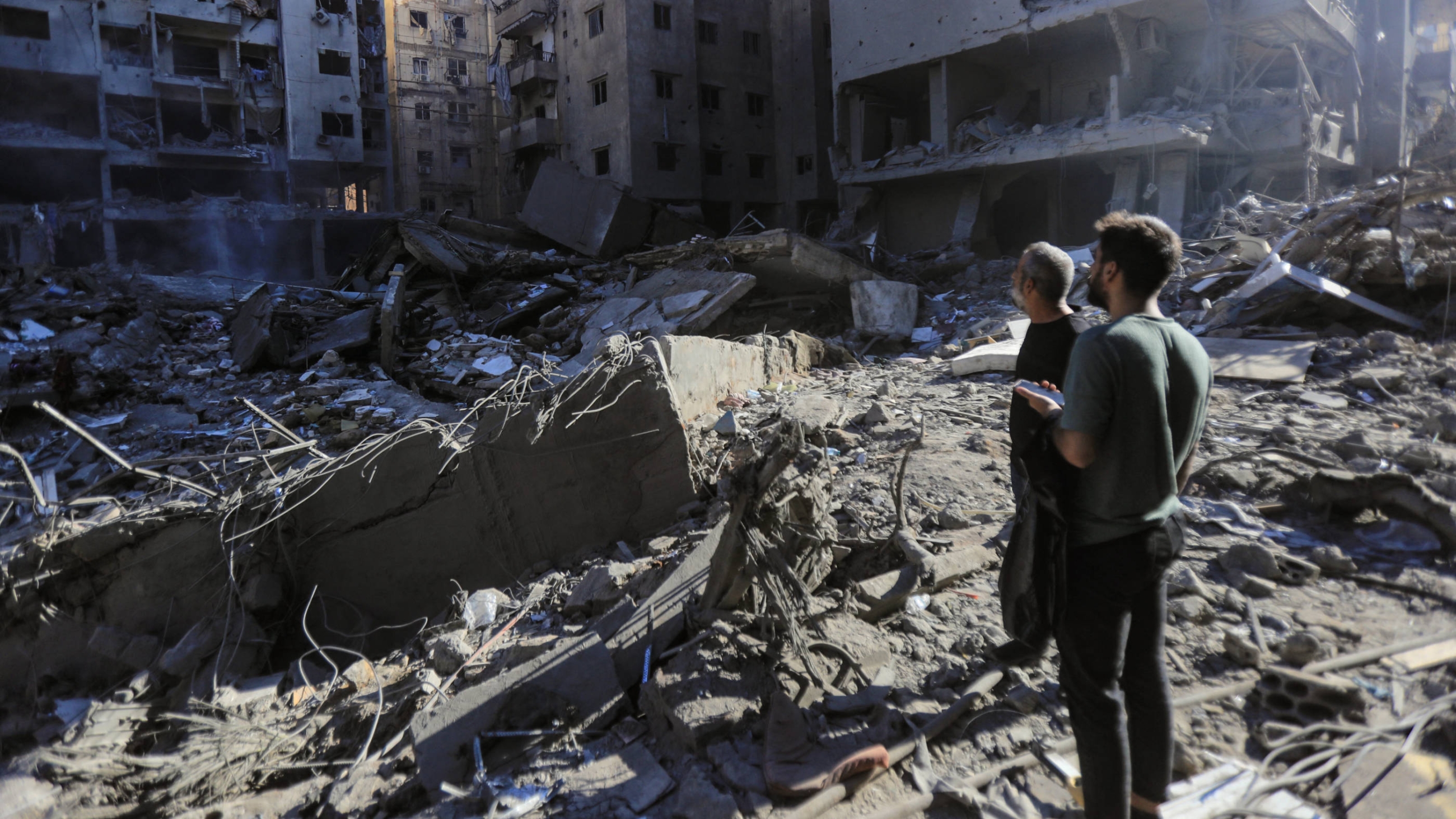
Israel launched dozens of air strikes across Lebanon on Sunday and vowed to keep up its offensive against Hezbollah, just two days after assassinating the group's long-serving leader Hassan Nasrallah.
At least 24 people were killed when the Israeli army bombed the town of Ain el-Delb, near the southern city of Sidon, Lebanon's health ministry reported.
Following the strike, pleas for help were shared online by people still trapped under the rubble.
Strikes also rained down on the northeastern Baalbek-Hermel governorate killing at least 21 people, according to a preliminary toll from the health ministry.
The attacks came hours after Israel bombed Beirut’s southern suburbs, colloquially known as Dahiyeh, where rescuers recovered the body of Nasrallah.
New MEE newsletter: Jerusalem Dispatch
Sign up to get the latest insights and analysis on Israel-Palestine, alongside Turkey Unpacked and other MEE newsletters
The Israeli military also confirmed it had carried out an assassination of a Hezbollah commander but did not specify the individual's name or fate.
Hours earlier, it announced the killing of senior Hezbollah figure Nabil Kaouk in Beirut on Saturday, marking the latest in a series of targeted attacks on the group’s leaders over the past few weeks.
Hezbollah confirmed Kaouk's death and also announced the killing of commander Ali Karaki alongside Nasrallah on Friday evening.
The Israeli army said it had killed 20 Hezbollah members, including Nasrallah and his close confidants, in Friday's attack.
Israel has carried out a relentless bombing campaign across Lebanon in recent days, targeting areas in Beirut as well as the south and the east of the country.
An Israeli strike on Jeb Jennine in the West Beqaa region reportedly killed a leader of the Jamaa Islamiya group, a Sunni faction fighting alongside Hezbollah against Israel.
Border regions in Syria, including al-Qusayr, were also targeted by Israeli strikes.
The continued bombings have raised concerns that the Israeli army may be preparing for a ground invasion of Lebanon.
Israeli tanks have been seen amassing near the Lebanese border, with ABC News quoting a US official who said that Israel may conduct a limited ground operation in southern Lebanon.
Lebanon’s caretaker prime minister, Najib Mikati, said Israeli attacks have displaced up to 1 million people in Lebanon, calling it “the largest displacement movement that may have happened” in the country's history.
Sunday’s attacks were particularly severe in northeastern Lebanon’s Beqaa Valley, where at least 17 members of the same family were killed in an Israeli strike on a home in the town of Zboud.
Beirut’s streets remain filled with people who fled this week’s attacks on Dahiyeh as they search for temporary shelter.
Israeli strike on Yemen's Hodeidah
Israeli forces struck Yemen's port city of Hodeidah, saying they targeted Houthi positions in the city.
Israeli officials told Axios that the strike was carried out in coordination with the US.
Human rights groups condemned Israel's previous strike on the city months ago, calling it a potential war crime due to the role Hodeidah plays in delivering crucial aid to civilians in Yemen.
In Gaza, the enclave's health ministry said that the Palestinian death toll in Israel's war has reached 41,595, with 96,251 wounded.
Al Jazeera reported that an Israeli attack on a school serving as a UN shelter killed at least four people and wounded at least 15.
Middle East Eye delivers independent and unrivalled coverage and analysis of the Middle East, North Africa and beyond. To learn more about republishing this content and the associated fees, please fill out this form. More about MEE can be found here.


